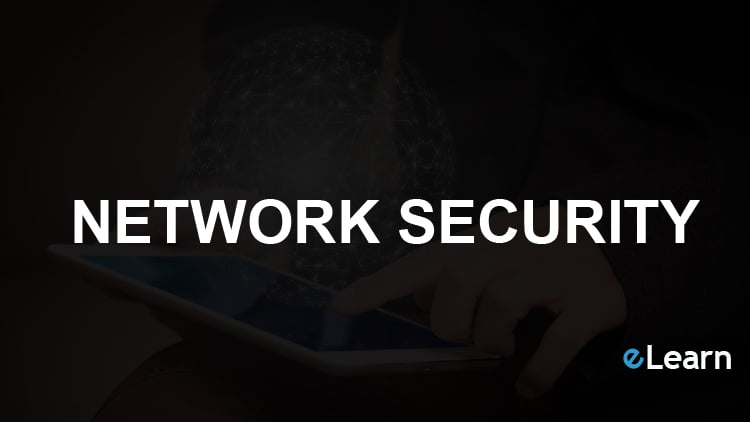
Network Security: Complete Learning Path, Skills & Courses Guide
Network Security is a core pillar of cybersecurity. Every organization—whether a startup, enterprise, or cloud platform—relies on secure networks to protect data, systems, and users from cyber threats.
This guide explains what network security is, where it’s used, what skills companies expect, a step-by-step learning path, course guidance, FAQs, and career opportunities.
What is Network Security?
Network Security refers to the practice of protecting computer networks from unauthorized access, misuse, attacks, and data breaches.
It combines:
-
Hardware (firewalls, routers)
-
Software (IDS/IPS, monitoring tools)
-
Policies and procedures
Network security ensures confidentiality, integrity, and availability of data.
Where is Network Security Used?
Network security is essential in:
-
Corporate IT networks
-
Data centers
-
Cloud environments
-
Banking and finance systems
-
Healthcare networks
-
Government and defense infrastructure
Any system connected to a network requires security controls.
Why Network Security Skills Are Important
Companies invest heavily in network security because:
-
Cyber attacks are increasing
-
Data breaches are expensive
-
Compliance and regulations demand protection
-
Cloud and remote work expand attack surfaces
👉 Network security skills are mandatory for cybersecurity roles.
Network Security Skill Set (What Companies Want)
Companies don’t expect everything at once. They look for progressive skill development.
Core Networking Knowledge
-
TCP/IP fundamentals
-
OSI model
-
DNS, DHCP, HTTP/HTTPS
-
Routing & switching basics
Network Security Fundamentals
-
Firewalls & NAT
-
VPNs
-
Network segmentation
-
Secure protocols
Monitoring & Defense
-
IDS / IPS
-
Log analysis
-
Traffic monitoring
-
Incident response basics
Advanced & Enterprise Skills
-
Zero Trust concepts
-
Cloud network security
-
Network hardening
-
Threat detection & mitigation
Network Security Learning Path (Step-by-Step)
Step 1: Networking Basics
Learn:
-
How networks work
-
IP addressing
-
Ports & protocols
👉 This is mandatory before security.
Step 2: Network Security Fundamentals
Focus on:
-
Firewalls
-
VPNs
-
Secure network design
👉 Builds your defense foundation.
Step 3: Monitoring & Traffic Analysis
Learn:
-
Packet analysis
-
Network logs
-
Attack detection
👉 Used heavily in SOC roles.
Step 4: Threats & Attacks
Understand:
-
Malware & DDoS
-
Man-in-the-middle attacks
-
Network exploitation basics
👉 Helps you think like an attacker.
Step 5: Advanced & Cloud Security
Cover:
-
Cloud networking security
-
Zero Trust
-
Enterprise security architecture
👉 Required for senior roles.
Best Network Security Courses Online (Beginner to Advanced)
Network security skills are essential for anyone aiming to work in cybersecurity, IT infrastructure, cloud security, or SOC roles. The courses listed below are carefully selected to help learners progress from beginner to advanced level, covering practical topics such as network fundamentals, firewalls, cloud and identity security, monitoring, and real-world attack defense.
Whether you are starting from scratch or upgrading your existing skills, these network security courses provide structured learning paths, hands-on labs, and industry-relevant knowledge to build job-ready expertise.
Beginner Level – Network & Security Fundamentals
Cloud Security Fundamentals: Protect Data, Apps & Infra
Learn core cloud security concepts including IAM, network protection, risk management, and data security fundamentals.
👉 View Course Details
Network Security: Cyber Security (From Zero to Advanced)
Beginner-friendly introduction to networking and security covering IP subnetting, routing, firewalls, VPNs, and antivirus basics.
👉 View Course Details
Network Administration Security & Cloud Fundamentals Overview
Covers essential concepts of network administration along with basic network and cloud security knowledge for IT beginners.
👉 View Course Details
Information Security Management Fundamentals for Non-Techies
A beginner course explaining information security, risk management, compliance, incident response, and security fundamentals.
👉 View Course Details
Ultimate Network Administrator Course
Hands-on course covering networking basics, troubleshooting, TCP/IP, and real-world network administration skills.
👉 View Course Details
Network Engineer (IT Boot Camp) – From Zero to Hero (WAN)
A practical boot camp teaching WAN concepts, enterprise networking, and hands-on labs for aspiring network engineers.
👉 View Course Details
Network Security – Cybersecurity Operations Fundamentals
A beginner-friendly course covering network protocols, TCP/IP, network monitoring, vulnerability assessment, and infrastructure security.
👉 View Course Details
Network Security (ISC2)
An entry-level network security course covering firewalls, network protocols, threat detection, cyber attacks, and TCP/IP fundamentals.
👉 View Course Details
Google Network Security Specialization
A beginner-focused specialization teaching network security fundamentals, traffic analysis with tools like Wireshark, and incident response basics.
👉 View Course Details
Data Security – Cybersecurity Operations Fundamentals
Covers core data security concepts including encryption, intrusion detection, key management, continuous monitoring, and threat detection.
👉 View Course Details
Intermediate Level – Defense, SOC & Enterprise Networking
Mastering Network Security: Defend Against Cyber Attacks
Learn packet analysis with Wireshark, intrusion detection, Kali Linux labs, and real-world defensive techniques.
👉 View Course Details
SOC Analyst Level 1 & 2 Masterclass
Career-focused SOC training covering SIEM tools, log analysis, threat intelligence, and incident response for SOC L1 & L2 roles.
👉 View Course Details
SC-300: Microsoft Identity and Access Administrator
Learn identity and access management concepts including Azure AD, authentication, authorization, and security best practices.
👉 View Course Details
SonicWall Firewall Administration Course
Step-by-step training on configuring and managing SonicWall firewalls from beginner to advanced administration.
👉 View Course Details
FortiGate Firewall NSE4 Version 7 Training (Part 1 & 2)
Hands-on firewall training covering FortiGate configuration, policies, and security labs aligned with NSE4 certification.
👉 View Course Details
The Complete Cyber Security Course – Network Security
Covers network security, WiFi security, firewalls, Wireshark, secure networking, and password management techniques.
👉 View Course Details
Computer Networks and Network Security (IBM)
An intermediate course focused on protecting networks and endpoints using firewalls, malware detection, intrusion detection systems, and security policies.
👉 View Course Details
Fortinet Network Security Specialization
An enterprise-level specialization teaching how to design, deploy, and manage Fortinet network security solutions and infrastructure.
👉 View Course Details
Azure: Network Security (AZ-500 Prep)
An intermediate cloud security course covering Azure virtual networks, firewall management, secure access, and network protection in Azure.
👉 View Course Details
Advanced Level – Attacks, Firewalls & High-Level Security
ARP Spoofing & Man-in-the-Middle Attacks: Execution & Detection
Advanced practical course on performing ARP spoofing and MITM attacks and detecting them in real networks.
👉 View Course Details
Learn Network Hacking from Scratch (WiFi & Wired)
Learn offensive network security techniques for WiFi and wired networks, along with defensive countermeasures.
👉 View Course Details
Palo Alto Firewall PAN-OS v11 – Zero to Hero (Part 1)
Advanced hands-on training on Palo Alto NGFWs including policies, NAT, App-ID, User-ID, and URL filtering.
👉 View Course Details
FortiGate Firewall Training: Beginner to Expert (2026)
In-depth FortiGate training covering FCA & FCP concepts with detailed labs and Wireshark packet analysis.
👉 View Course Details
Fortinet NSE7 SD-WAN Training
Advanced enterprise networking course focusing on Fortinet SD-WAN architecture, configuration, and optimization.
👉 View Course Details
Complete Teaching of ENCOR 350-401 v1.1
Advanced enterprise networking course preparing learners for Cisco ENCOR 350-401 with in-depth routing, switching, and security.
👉 View Course Details
TOTAL: CompTIA Security+ (SY0-701) + Practice Exam
Complete Security+ preparation covering network security, threats, vulnerabilities, risk management, and exam practice.
👉 View Course Details
Optical Fiber Transmission Networks Using DWDM Technology
Advanced networking course covering DWDM fundamentals, optical components, ROADMs, amplifiers, and transmission systems.
👉 View Course Details
Advanced Network Security Specialization
An advanced specialization focused on next-generation firewalls, intrusion prevention systems, threat response strategies, and continuous monitoring.
👉 View Course Details
Network Security Courses: How to Choose the Right One
When selecting network security courses, look for:
-
Networking fundamentals included
-
Hands-on labs
-
Firewall & monitoring coverage
-
SOC-oriented skills
-
Certificate (optional but helpful)
Beginner Courses Should Cover
-
Networking basics
-
Firewalls & VPNs
-
Common threats
Intermediate Courses Should Cover
-
IDS/IPS
-
Traffic analysis
-
Incident response
Advanced Courses Focus On
-
Enterprise security
-
Cloud network security
-
Threat hunting
Career Roles That Require Network Security
With network security skills, you can target roles such as:
-
Network Security Engineer
-
SOC Analyst
-
Cybersecurity Analyst
-
Network Administrator
-
Cloud Security Engineer
-
Incident Response Analyst
Network security is a core requirement in cybersecurity job descriptions.
Network Security vs General Cybersecurity
Cybersecurity is broad and includes:
-
Application security
-
Cloud security
-
Endpoint security
Network security focuses specifically on:
-
Network traffic
-
Infrastructure protection
-
Communication security
👉 Strong network security knowledge improves all cybersecurity roles.
Frequently Asked Questions (FAQs)
Is network security hard to learn?
No. Start with networking basics and progress gradually.
Do I need coding for network security?
Not mandatory at beginner level. Scripting helps later.
Is network security still in demand?
Yes. Demand is growing with cloud and remote work.
Can beginners start with network security?
Yes, if they first understand basic networking.
Are certifications important?
Helpful, but hands-on skills matter more.
Network Security is a foundational cybersecurity skill. Companies want professionals who understand how data moves across networks and how to protect it.
👉 Best approach:
Learn networking → master network security basics → analyze traffic → defend against attacks → move to cloud & enterprise security.
This learning path aligns perfectly with what companies actually hire for.




